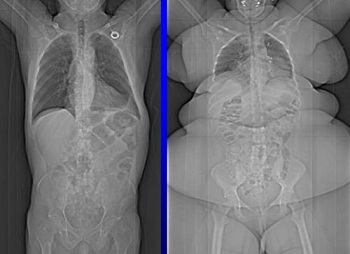I remember reading an old article in Iron Mind — maybe it was by John McCallum, but it could have been Ken Leistner — about being young, training hard, and eating big. The author talked about how they would work during the day, train in the evening, then head over to a local diner to eat cheese burgers and milk shakes. He also discussed how they made weight gaining shakes with milk, cream, chocolate syrup, and protein supplements. It’s such a glorious concept; eating what society calls junk food and getting big and strong.
But lettuce be real tea, this won’t last forever. Either you won’t stay 19 forever or you’ll end up chubby. If you think that being marginally stronger and plenty more fat is worth it, that’s fine, but let’s get serious. The percentage of professional athletes and world contendors (who might sacrifice body weight for performance) I know is pretty low; everyone else owes it to themselves to not be sloppy-fat for pride and health reasons. “But what about guys like Paul Anderson?” If you were Paul Anderson (or any other strong-fat guy) you would have fucking known it by now. It’s okay to say, “I want to look good/better/great and still be strong.” Really, it isn’t a big deal. Anyone making a big deal about it inherently doesn’t care about what you want out of your training.
The other day someone asked what their numbers needed to be in order to “dial in” their diet. Much like there is no strength requirement to advance, there is no absolute number to get to before making better food choices. Just becuase food quality increases doesn’t mean the macros or calories have to decrease. Eating high caloric food is easy because it’s readily available. As Johnny Pain’s e-book SWOLE points out, it takes effort to eat better and still make good mass gains.
I’m not a zealot about anything nor am I a diet groupie. Different types of people will require different things, yet it will typically funnel into some basic concepts. If I had to say my ‘nutrition methodology’ revolves around an existing diet, it would side loosely with the Paleolithic Diet. The food choices in a Paleo set up are of the highest quality, meat is aplenty, fat intake is high, and carbs aren’t superfluous. I see it as the end goal for most people to shift into to age with; it just makes sense that eating the most nutrient dense food sources and eliminating synthetic chemicals would yield optimal health. However, I don’t hardline the rules like a zealot and am okay with having leeway. I don’t support whining about feeling sick after eating some ice cream or making a group of people change their dinner plans because you’re frightened over the potential gluten exposure. And when training hard, you’ll sometimes need something more than what a caveman scrounged up for his hairy wife.
But what’s more important than the end product are the steps that are taken to get there. In all the time I’ve been training people, eating seems to be the hardest habit to change, and the fatter the person, the worse it is. People who can make heaps of changes all at once are rare, and instead I recommend that most go through phases. These phases should be followed until their contents become habit. As always, it’s variable based on the person, but I tried organizing it logically. Don’t fucking spend a lot of time worrying and analyzing the order of everything; look at the general trend over time from simple to more complex.

